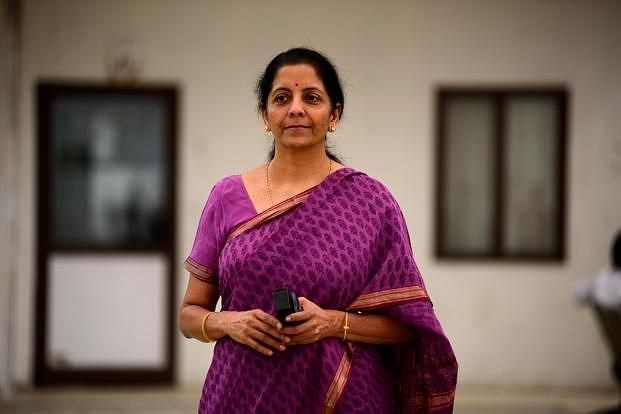Business
Differentiated Voting Rights Framework May Allow Government To Go Below 51 Per Cent In PSUs Without Losing Control
- Finance Minister Nirmala Sitharaman, in her budget speech, indicated that the government was open to retaining control of non-financial PSUs with less than 51 per cent stake.
- The differentiated voting rights framework will allow the government to have less than 51 per cent stake in PSUs without losing control.

Finance Minister Nirmala Sitharaman.
The Narendra Modi government is said to be considering changes in the Companies Act to liberalise the issue of shares with differential voting rights (DVRs). Among other things, the cap of 26 per cent of paid-up capital for the issue of DVRs may be reviewed upwards, says an Economic Times report.
Last month, market regulator Securities and Exchange Board of India (SEBI) approved a framework for the issue of DVRs, something which tech startups and promoter-driven companies have been clamouring for. Tech startups often need huge dollops of capital infusion as they scale up their business models, but with rising capital investment, promoters tend to lose shareholding power and control. This is one reason why Flipkart went out of the hands of its original promoters, Sachin and Binny Bansal.
DVRs allow promoters to issue new shares with lower voting rights, or giving their own shares higher voting rights. DVRs with lower voting rights can often come with higher dividend rights.
The SEBI framework will allow tech companies that have already issued DVRs to make initial public offerings (IPOs) subject to certain conditions. Already issued DVRs can also be listed, subject to certain lock-in clauses.
But while the issue of DVRs is of highest interest to tech startups, one another beneficiary could be the government itself, since it would allow it to retain 51 per cent control of public sector undertakings (PSUs) by issuing shares with differential voting rights. Thus, economic capital can expand, while 51 per cent voting rights remain with the government.
In her budget speech, Finance Minister Nirmala Sitharaman indicated that the government was open to retaining control of non-financial PSUs with less than 51 per cent stake.
She said: “Government has been following the policy of disinvestment in non-financial public sector undertakings, maintaining government stake not to go below 51 per cent. Government is considering, in case where the undertaking is still to be retained in government control, to go below 51 per cent to an appropriate level on case-to-case basis. Government has also decided to modify present policy of retaining 51 per cent government stake to retaining 51 per cent stake inclusive of the stake of government-controlled institutions.”
While this statement does not indicate any intention to issue shares with differentiated voting rights in public sector companies, technically it should be possible to do so once the new framework comes fully into force. DVRs may be more workable than trying to retain control by asking government-controlled institutions to hold shares, since these investments will become unremunerative to these institutions. One cannot see how even a Life Insurance Corporation, which has to use its funds in the interest of its policy holders, can hold public shares which it cannot ever sell.
DVRs should actually work best with financial and banking companies, which always need more capital, but since Sitharaman specifically excluded their mention, one has to presume that the intention is not to control banks with lower economic shareholdings.
But the option is open in future.
Introducing ElectionsHQ + 50 Ground Reports Project
The 2024 elections might seem easy to guess, but there are some important questions that shouldn't be missed.
Do freebies still sway voters? Do people prioritise infrastructure when voting? How will Punjab vote?
The answers to these questions provide great insights into where we, as a country, are headed in the years to come.
Swarajya is starting a project with an aim to do 50 solid ground stories and a smart commentary service on WhatsApp, a one-of-a-kind. We'd love your support during this election season.
Click below to contribute.
Latest